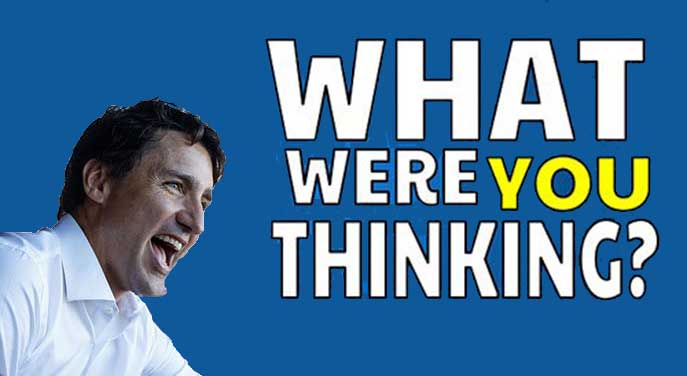 Oil prices have risen to a staggering $US120 per barrel in the wake of Russia’s invasion of Ukraine. But that’s not a record in real-dollar terms.
Oil prices have risen to a staggering $US120 per barrel in the wake of Russia’s invasion of Ukraine. But that’s not a record in real-dollar terms.
Inflation-adjusted oil prices reached the same level in 2013, driving a supply response that temporarily lowered prices. World oil demand steadily increased, reaching a record 100 million barrels per day before the COVID-19 collapse.
Demand has since come roaring back and, despite all the “net-zero” rhetoric, the International Energy Agency (IEA) forecasts that world oil demand will continue to grow.
The big question is: who will supply all that oil?
Middle Eastern countries, led by Saudi Arabia, will be major contributors and, despite U.S. and United Kingdom bravado in banning Russian imports, current and forecast world oil demand can’t be met without Russian oil.
The disparate list of countries controlling world oil supply may soon include Iran if, as news reports suggest, U.S. President Joe Biden is naïve enough to remove oil export sanctions in return for Ayatollah Ali Khamenei’s pledge to suspend uranium enrichment.
That would leave world oil supply security in the hands of one country that subjugates women, another led by a murderous psychopath and a third developing a nuclear bomb with the avowed objective of annihilating Israel.
Meanwhile, with the world’s third-largest oil reserves, Canada is sacrificing hundreds of billions of dollars per year in revenues and new capital investment and tens of thousands of well-paying jobs on the net-zero altar by pursuing policies that make building new oil export pipelines virtually impossible.
Even a proposed transnational pipeline that would have delivered Canadian oil to eastern refineries was deliberately stymied by the government of Prime Minister Justin Trudeau. As a result, tankers carry Saudi Arabian and African oil, which emits far more greenhouse gases than domestic oil, up the ecologically fragile Gulf of St. Lawrence.
Speaking in London in July 2006 before departing for a Vladimir Putin-hosted G8 Summit in Saint Petersburg, then-prime minister Stephen Harper called Canada “a new energy superpower.” Oil and gas industry capital investment rose sharply, doubling from $30 billion to $60 billion before the Conservative government’s defeat in 2015.
By 2019, Trudeau’s anti-oil and gas policies had seen the industry’s capital spending collapse to less than half of 2006 levels.
Many Canadians may not know that history. But if there’s one thing that does get their attention, it’s the price at the pump.
Anti-fossil-fuel ideologues worshiping at the net-zero altar may be delighted by the recent runup in gas prices. But not real-world working Canadians. On March 4, gas prices in B.C. hit $2 per litre, taking the cost of filling up the family sedan to as much as $140. Given the sprawling nature of Canadian cities, commuting to work takes at least one fill-up per week. That can amount to more than $600 a month for a single car.
Along with gas prices, food and other necessities have also risen to record levels across the country. A recent Angus Reid survey found that 53 percent of Canadians surveyed were already unable to keep up with the rising cost of living.
The 11-cents-per-litre federal carbon tax doesn’t seem like much compared with current total pump prices. But it’s just the beginning. The federal Liberal government plans to progressively increase the tax to 38 cents a litre by 2030. Adding the nine-cent-per-litre B.C. carbon tax means drivers in that province will pay carbon taxes of 47 cents a litre.
The theory behind carbon taxes is that higher prices will reduce consumption. But that only applies if there’s a viable alternative. For cost-stressed real-world Canadians, driving a vehicle that’s needed for business or getting to work, a carbon tax on fuel is simply impoverishing.
At a time when the world’s oil supply is being squeezed by war, the importance of unleashing Canada’s enormous oil resources has never been clearer.
Why the world won’t sanction Russian oil by Michael Brown
A post-pandemic world clamouring for raw energy and the domestic politics of inflation mean Russian oil is here to stay – for now
During Trudeau’s recent trip to Latvia, a reporter asked whether Canada could help make up the oil supply shortage. His answer illustrated the fanatical depth of our leader’s worship at the net-zero altar: “We will be there to support, as the world moves beyond Russian oil and indeed, beyond fossil fuels, to have more renewables in our mix.”
This incredible answer comes at a time when innocent Ukrainians and their beautiful country are being ravaged by a megalomaniac who threatens the world with nuclear Armageddon.
No doubt Russian President Putin is grateful to Trudeau for helping him control world oil markets by having hamstrung Canada’s “energy superpower” potential. It was Putin’s predecessor, Vladimir Lenin, who coined the phrase “useful idiots.”
Never before have I been ashamed of being a Canadian. I pray for new political leadership that will make me and millions of other dispirited Canadians proud of our country again.
Gwyn Morgan is a retired business leader who has been a director of five global corporations.
Gwyn is a Troy Media contributor. For interview requests, click here.
The opinions expressed by our columnists and contributors are theirs alone and do not inherently or expressly reflect the views of our publication.
© Troy Media
Troy Media is an editorial content provider to media outlets and its own hosted community news outlets across Canada.


